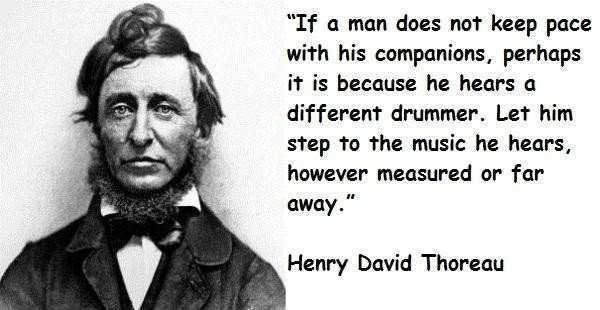The Civil Disobedience was promoted by Henry David Thoreau, therefore it is famously known as ‘Thoreau’s Civil Disobedience’. His distrust with government has been stated under an essay with the motto “The Government is best which governs least”.

His distrust with the government is so high that he mentioned the tendency of the government to be as "perverted and abused" before the people who can actually express their will with it. Thoreau view about the government is like the fundamental hindrance of the creativity of the people and its purpose to be demonstrated. He even mentioned a prime example of the regulation of trade and commerce, and the negative effect caused by it while applied over the free
market.
Thoreau begins the Civil Disobedience by challenging the existence and the role of the government is playing in society
for the people. He completely believed that the government is not willing to govern the people at the best of its kind. He thinks the government is working like a hurdle for the welfare of the society as well as the individual. Because the
main concern of the government was to increase the trade and commerce, and politics and ultimately it didn’t help anyone, however, it was getting into the way of societal function and progress.
After all these complaints from the government, Thoreau refused to pay taxes and due to which spent a night in jail. However, he ideologically separated himself from the governments working, "washing his hands" of it and refused to participate under governmental institutions and activities.
According to Thoreau, this type of protest was preferred such as to advocate the reform from within the government. He believed that
one cannot see the flaws in government when one is working within it. He even stresses in his essay that he doesn’t want to remove the government, but rather, he wants to make it better in working wise. He wants a government which should be more concerned with the justice and
welfare of people.